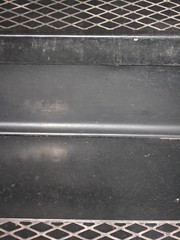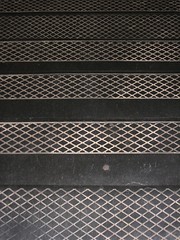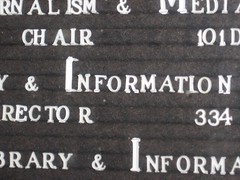Instead of looking at just any old library blog, I decided to examine blogs associated with my professional area of interest--academic law libraries. I started on the Library Success Wiki, which eventually linked me to the Blogging Libraries Wiki. So many blogging libraries! (If you know of any more, you can add them to the wiki!
Et Seq., the Harvard Law School Library blog, is very well done--easy to read, frequently updated, well organized. The posts on Et Seq. are archived by category as well as date, and include items--from new databases to law school casebooks on MP3 to a book about a pig who attends Harvard Law School--of interest to law students/professors/librarians. Even this recent NYT Style section piece on hip librarians (with some mentions of Web 2.0/Library 2.0) made the cut. To me, the posts on Et Seq. are just mixed enough to keep it interesting.
The blog for the Widener University Law Library on the Delaware campus is neither as frequently updated nor as intellectually broad as Et Seq., but as a law library blog, it is just as effective. Topics covered in the posts range from library hours to interesting summer reading to new recycling procedures.
It doesn't seem like it's been that long since I finished law school, but the adoption of new technologies makes most law library webpages look wholly different from what I was used to four years ago. I would have loved to use a blog back then to keep me apprised of developments in my law school's library.





